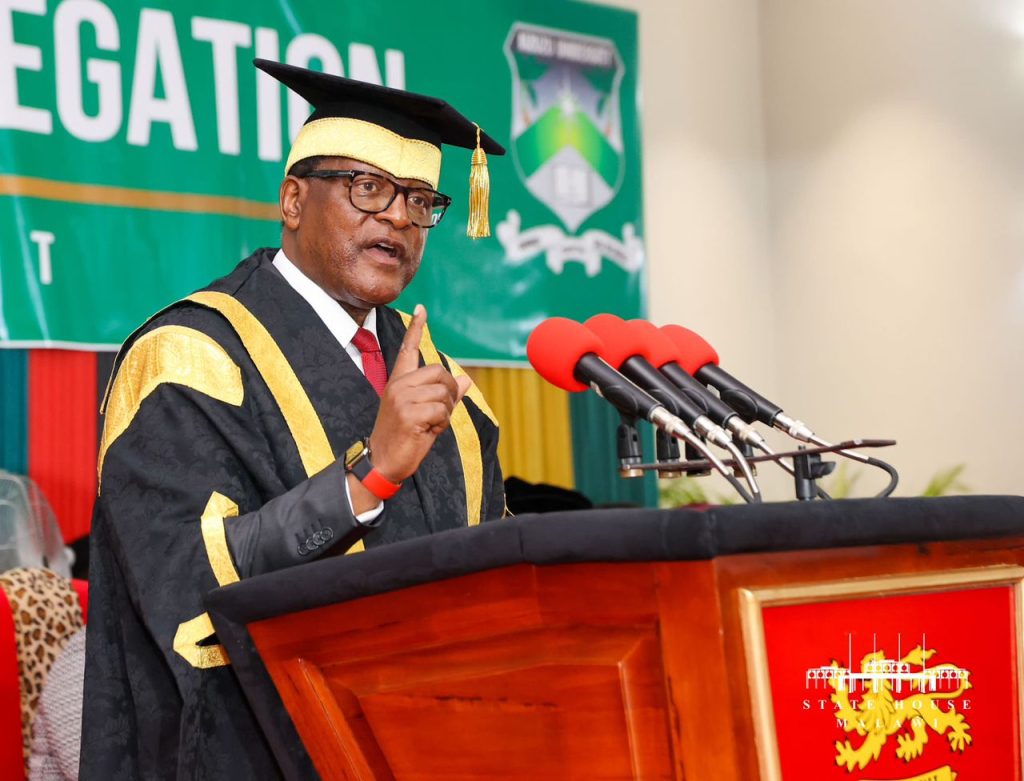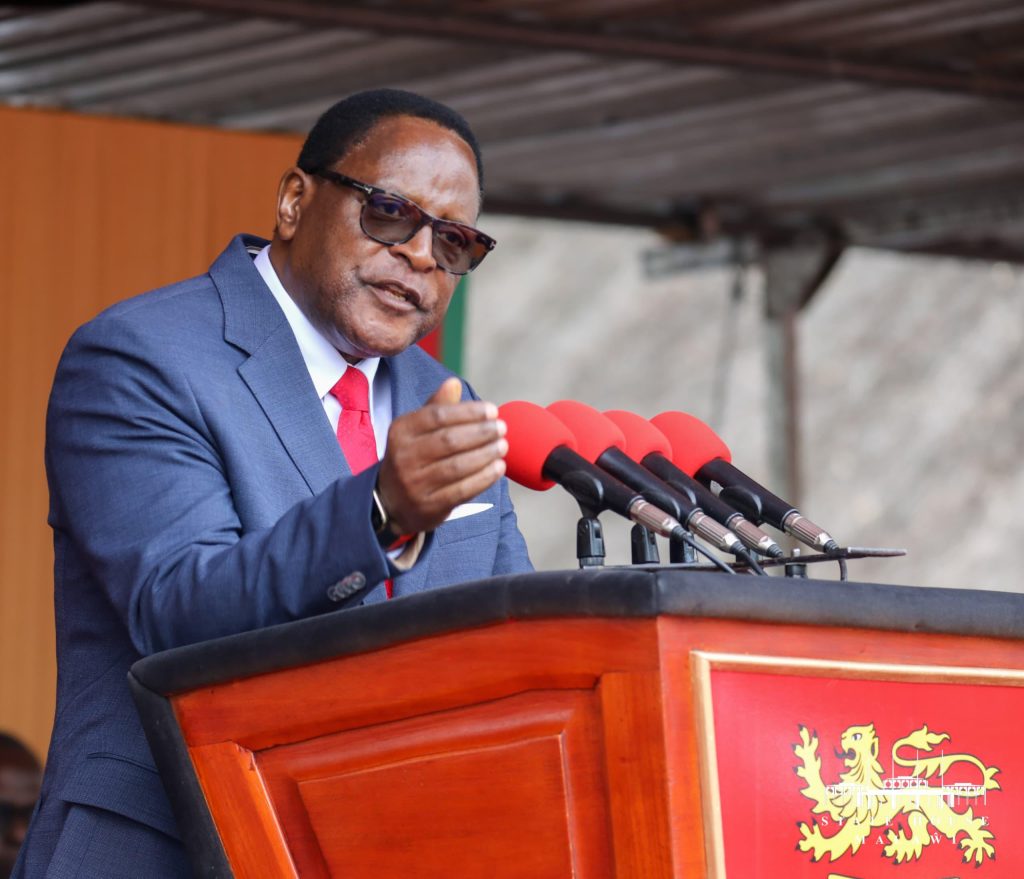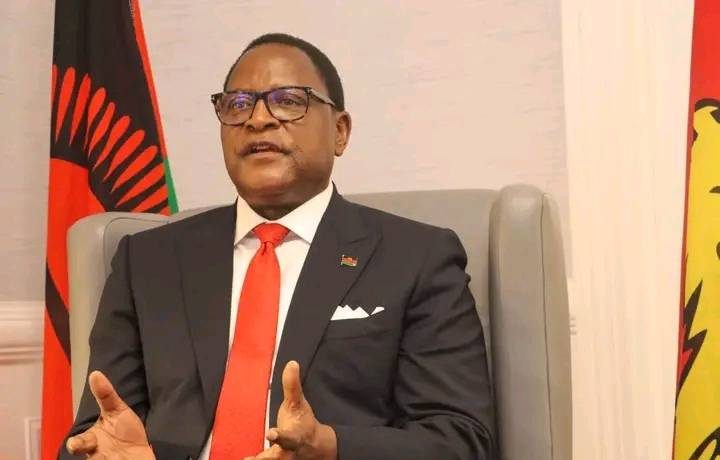The International Monetary Fund (IMF) has been subjected to a rude awakening through an emerging resistance of its barbaric economic policies on poor countries. Fed up with the IMF’s relentless push for public spending cuts, the Malawi President, Dr. Lazarus Chakwera, instructed his delegation which was headed for New York talks with the IMF to reject the IMF’s insistence of public expenditure adjustments. The New York discussion ended with a common understanding between the IMF and the Malawi Government to suspend the IMF programme in Malawi.
Speaking back home both in Mzuzu (at Mzuzu University – Mzuni- graduation ceremony) and in Blantyre at Trade Fair following the development, President Chakwera highlighted that his decision to shelve the IMF programme is more than necessary saying Malawi cannot accept continued cuts in public expenditure at a time when development is needed to take shape.
Speaking at the Mzuni graduation ceremony, the President made the following remarks:

“Last month I sent a team to Washington DC to hold discussions with the International Monetary Fund and the two sides agreed that on the 15th of this month, which is today, the Extended Credit Facility program that Malawi has with the IMF should be allowed to lapse and be suspended until we are done with the upcoming elections. Now, we took this position to suspend the program because the program requires us to significantly reduce spending at a time when I believe we need to increase our spending to give teachers, police officers, soldiers, and civil servant higher salaries to weather the rising cost of living that is affecting the global economy; at a time when I believe we need to increase spending to construct roads and rail to improve the movement of goods and services; at a time that I believe we need to increase spending on investments in value-addition in Agriculture, Tourism, and Mining; at a time when I believe we need to increase spending to give young people and women access to loans through the National Economic Empowerment Fund and the Students’ Loans Board so that they can have a future; at a time when I believe we need to increase spending to make progress on the construction of M’mbelwa University, the Mzuzu Youth Center, and other critical infrastructure here in the north; at a time when I believe we need to increase spending on maternal health to support hundreds of thousands of mothers in the rural areas who are desperate to have access to healthcare for their young ones; and at a time when I believe that we need to increase spending on emergency food for millions of families whose crops have been destroyed by drought and dry-spells. So for these reasons, I told my team that if the choice between now and the end of the year is between continuing the IMF program and spending on programs that are designed to take the development of Malawians forward, the choice is a simple one for me, because we cannot afford to lose the momentum we have on so many developments around the country”.
Pursuing Malawi’s growth ambition among its citizens, the President disclosed at the Trade Fair that his Government has entered an agreement with the African Development Bank to establish a local development bank under the National Economic Empowerment Fund (NEFF) with an initial capital of K1 trillion aimed at providing affordable capital for citizens.

“Tiyeni anthu a abizinesi tiwaike patsogolo, chifukwa iwowa ndi amene atapangitse kuti chuma chadziko lino chipitse patsogolo. Ndi chifukwa chakenso programu ya ngongole za ku International Monetary Fund atatiuza kuti tikapanda kuchepetsa kuika ndalama mmaprogramu ngati a NEEF, kapena tikapanda kugwetsanso ndalama yathu, kapena tikapanda kukweza mtengo wamagetsi ndi mafuta, ayithetsa, ine ndinati thetsani. Chifukwa sitingalore wina abwere kuti ndikandalama konama nkumatiuza kuti ndalamayo cholinga chake nkuvulaza anthu abizinesi mMalawi muno, chifukwa kukweza mtengo wa magetsi ndiye kuti mwatiphera ma bizinesi a ma saluni, mabizinesi a ometa tsitsi, mabizinesi onse omwe amadalira magetsi. Ofuna kubweretsa ndalama kuno athandize kutukula ma bizinesi, osati atiphere ma bizinesi. Kulibwino akhale nazo ndalamazo tipeze ena amene ali ndimakutu okumva zomwe tikufuna”, the President said.
Corroborating with President Chakwera’s resolve to ignore IMF, a global Non-Governmental Organization, ActionAid, has accused the IMF of deepening economic crisis in poor countries through its coercive policies. Findings of an ActionAid study in six African countries have faulted the IMF policies, saying they have led to deterioration of public services. In what comes across as exploitation of vulnerability, the IMF pushes relentless public spending cuts on poor countries while leaving developed countries alone.
ActionAid says the IMF is to blame for its advice to governments to cut spending on public services in order to service foreign debts. With the accelerating debt crisis in the Global South, over three-quarters of all low-income countries in the world are spending more on debt servicing than they spend on public service.
Released on 20th May, 2025, the study report titled “Human Cost of Public Sector Cuts in Africa”, highlights that developing countries tend to prioritize repayment of foreign debt at the expense of social spending in sectors such as health, education and agriculture.
The analysis of the study has revealed the devastating impact of public spending budget cuts on health and education systems across six African countries — Ethiopia, Ghana, Kenya, Liberia, Malawi and Nigeria.
In general terms, the study found that in 2024, external debt repayments as percentage of national revenue was 25.4 percent while spending health stood at 5.4 percent and public sector wage bill as percentage of gross domestic product (GDP) was 4.5 percent, but IMF still called for cuts.
Cuts to public budgets since 2020 have slashed essential funding. In the education sector, 87 per cent of teacher respondents cited a shortage of essential classroom furniture and reduced access to teaching materials and 73 per cent of education sector workers have had to purchase resources themselves.
Across the six countries surveyed, an average of 40 per cent of teachers reported a reduction in income, 34 per cent of teachers reported strain on personal relationships because of an increase in workload and 44 per cent of teachers planned to leave the profession.
The cuts have resulted in shortages of equipment and medicines, with high inflation further leading to increases in medicine costs, yet there are increases in number of patients. The report finds that a decline in real wages due to inflation has had negative impact on the living conditions of families.
Country-specific analysis revealed significant budget shortages for equipment and medicines in local health centres across all survey countries. The highest levels of shortages were reported by health workers in Kenya (96 per cent), Ethiopia (95 per cent), and Malawi (95 per cent).
The IMF is to blame for these countries’ failing public systems, the report said, as the agency advises governments to significantly cut public spending to pay back foreign debt.
In its recommendations, the ActionAid report urges African governments to reject coercive IMF policies, seek debt relief or cancellation, and expand tax revenues in fair ways to rebuild public health and education workforces and infrastructure.
ActionAid is a global federation working for a world free from poverty and injustice. It declares a pursuit for just, fair and sustainable world, in which everybody enjoys the right to a life of dignity, and freedom from poverty and oppression. It further declares that it aims to achieve social justice and gender equality, and to eradicate poverty.
This report by ActionAid faults IMF on its coercive policies of public expenditure cuts in poor countries. Essentially, the report is agreeing with President Chakwera’s stance on rejecting IMF’s relentless push for public expenditure cuts. The President has stood on firm ground that Malawi needs to activate its growth and that this can be achieved through strategic spending in infrastructure developments and the population’s social welfare enhanced through effective public services such as functioning healthcare and education sectors among others.













